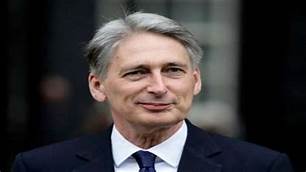By Gavin Mackintosh-
Twelve associations representing schools , college staff and students are imploring the Chancellor of the Exchequer to increase funding for sixth form education in next week’s Budget.
The letters marks the launch of the ‘Raise the Rate’ campaign, calling for an increase to the funding rate for all 16-18-year-old students, curtailed twice since 2010 and frozen at £4,000 per student, per year since 2013. The rate for 18-year-olds specifically was reduced even further to £3,300 in 2014.
The ‘Raise the Rate’ campaign are calling for an increase in funding to £4,760 per student in the next spending review. They want an increase of at least £200 per student added in the next budget, a figure they believe should be tripled by the next spending review to be implemented in 2021.
The extra money the group say it needs will constitute a rise of 14% on the current £4,000 base rate for 16 and 17-year-olds. The figure goes up by 4% for 18-year-olds taking a third year of sixth form to 44 per cent. Among the associations that have called for extra funding include the Grammar School Heads Association National Association of Head Teachers, National Education Union
National Governance Association, National Union of Students, Sixth Form Colleges Association
A report from the Institute of Fiscal Studies last month found government funding for 16-to 18-year-olds has been cut “much more sharply” than funding for pupils in pre-school, primary, secondary or higher education. Schools minister Nick Gibb also admitted in January last year that sixth forms were facing “tight” resources. “I recognize that there is more to do to continue improving our post-16 education system,” he said at the time.
The letter sent to chancellor Philip Hammond today explicitly states a combination of funding cuts and cost increases have left schools and colleges stretched at a time when “the needs of young people have become increasingly complex”, with more students reporting that they are experiencing mental health problems, for example. Mental health has always been a disturbing aspect of education particularly for those in highly academic schools where pressure to perform is always on.
Research from policy and economics consultancy London Economics commissioned by the Sixth Form Colleges Association is being used as a basis for the call for urgent funding intervention. Research concluded that an increase in funding of “at least £760 per student” is required to continue providing “a high quality education to young people”.
“Only a significant increase in the national funding rate for 16-to-18-year-old’s will make it possible for the government to meet its objectives for a strong post-Brexit economy and a socially mobile, highly educated workforce,” the associations said. The group say the extra funding requested is the bare minimum required to bring the best out of sixth form students by boosting work experience opportunities, university visits, extracurricular activities and support minority visits.
A key question is whether the Chancellor of the Exchequer agrees the extra money is necessary. Extra funding can ease the mind of pupils and broaden their exposure to lines along their future prospect. Some of any money obtained should also be used to obtain extra tuition from pupils who may need it. Funding from the government should be used to support the academic development of pupils more, and valuable work experience may come under this category.
They claim the money is needed to boost student support services to the minimum required level; support minority subjects, such as languages, that are at risk of being dropped; and increase extra-curricular activities, work experience opportunities and university visits.

